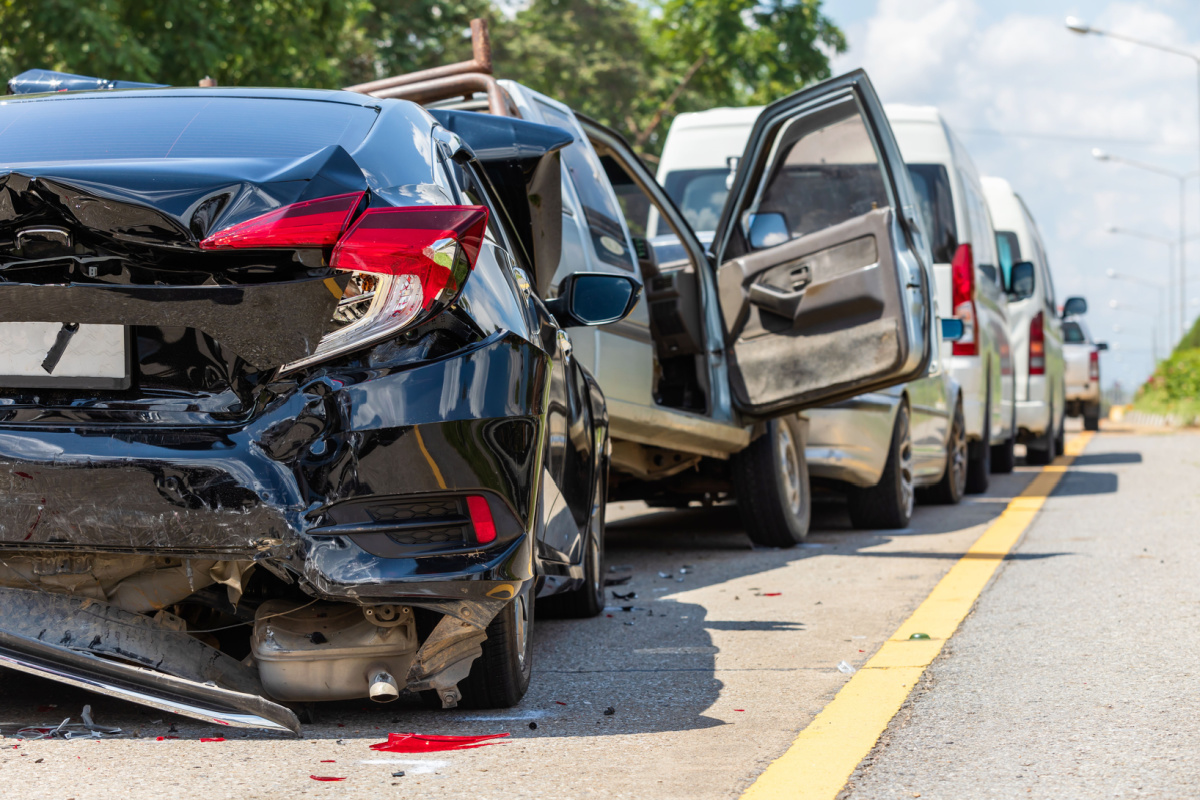
Your odds are relatively high of getting in a car accident as a driver in West Virginia. According to the State Highway Safety Report, 260 people lost their lives and 906 suffered serious injuries in automobile accidents in 2019 alone. Car accidents happen daily in major West Virginia cities, such as Charleston and Huntington. Fortunately, there are a few simple steps you can take to avoid being in a car accident. The West Virginia car accident lawyers at Manchin Injury Law Group recommend taking the following actions to reduce your risk of injury.
Defensive driving means paying attention to everyone around you when you drive. It utilizes safe driving strategies so that you can more easily identify hazards and avoid potential causes of car accidents. Defensive driving is a habit of glancing around the road, noticing the drivers around you and predicting their actions based on their driving behaviors. Part of defensive driving is assuming that other drivers are going to break the law and put you in danger. Stay vigilant and be prepared to react if a driver near you is behaving negligently.
The purpose of traffic laws in West Virginia is to keep traffic orderly and prevent collisions. Do your part by obeying the laws and roadway rules that apply to you. As a driver, this includes speed limits, rights-of-way, traffic signs and control signals, safe lane-change habits, proper following distances, cell phone laws and drunk driving laws. Breaking the rules is never worth it; for example, you might gain an extra minute by breaking the speed limit or weaving through traffic, but you risk a potential lifetime of medical bills and permanent injuries from a catastrophic car accident.
Speeding is one of the most common driver mistakes that cause automobile accidents in West Virginia. A speeding driver is often traveling too fast to bring the car to a complete stop when faced with a crash risk, such as a tree that has fallen in the middle of the road or a child that darts out between two parked cars.
Rather than being able to come to a safe stop, a speeding driver might slam on the brakes only to lose control of his or her car, resulting in a collision or rollover. Keep in mind that speeding does not only mean driving above the posted speed limit, but driving too fast for conditions even if you’re below the speed limit. It is your responsibility to adjust your speed in unsafe conditions, such as rain or a construction zone.
Statistically, some driving times are safer than others. According to the National Highway Traffic Safety Administration (NHTSA), crashes are most common between 3-6 p.m. on a weekday – evening rush hour. More vehicles on the road means a higher risk of collisions, especially rear-end collisions in bumper-to-bumper traffic. If you can’t avoid driving during these times, at least use extra caution. Also avoid driving during the late night hours, when you’re most likely to encounter a drunk driver.
Distracted driving – and, specifically, texting and driving – causes thousands of car accidents every year. According to the NHTSA, 3,142 victims lost their lives because of distracted drivers in 2020. Resist the temptation to talk on the phone, text or otherwise fiddle with your mobile device. Hand it to a passenger to manage or put it in your glovebox. If you must take a call or check your map function for directions, pull over to the side of the road and do it there. If you’re a parent to a teenage driver, enforce a strict “phone off while driving” rule and keep them accountable by downloading a usage and tracking app.
Never operate a motor vehicle after drinking alcohol. Even if you don’t feel tipsy, you could have enough alcohol in your system to impair your driving abilities and result in a driving under the influence (DUI) arrest – or worse, cause a drunk driving accident. Drunk drivers are often guilty of drifting in and out of their lanes, erratically speeding up and slowing down, driving too fast, driving recklessly, and falling asleep behind the wheel. If you notice any drivers near you exhibiting signs of drunk driving, keep a safe distance and call 911 to report the dangerous driver.
Sometimes, it is not driver error that causes a car accident but inclement weather. West Virginia often experiences weather that is dangerous to drive in, such as rain, sleet, ice and snow. Check the weather before driving to your destination. If a bad storm is in the forecast, stay home. If you must drive in poor weather, reduce your speed, increase your following distance behind other vehicles, pay attention to the road at all times, and be prepared to pull over and request emergency assistance if the weather gets too bad to continue.
There’s always some risk of being in a car collision, even if you control as many factors as possible. Wearing a seat belt is one of the simplest ways you can reduce your risk of serious injury, even if you are in an unavoidable car crash. If you do get involved in a car accident in West Virginia and suffer serious injuries, consult with a personal injury lawyer as soon as possible to discuss your legal options.

Attorney Timothy Manchin established the Manchin Injury Law Group in 2011 after his law partner of more than 25 years became a West Virginia circuit court judge. His focus is on helping individual clients and entire families victimized by negligent acts.
We offer a free initial consultation at our office in the Manchin Professional Building — our home since 1983 — conveniently located in Fairmont.
If you are unable to visit our firm, we can come to your home or hospital room.
Fill out the form below to get in touch!